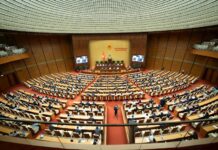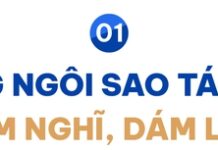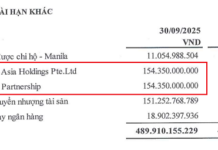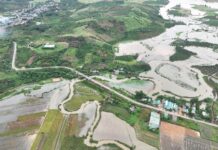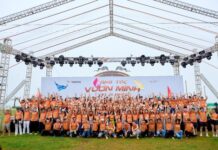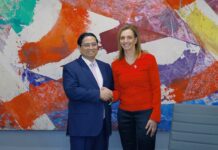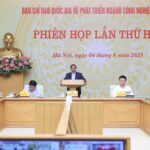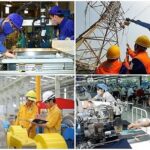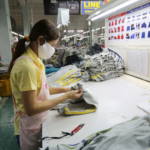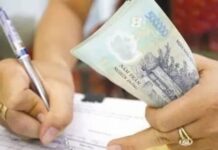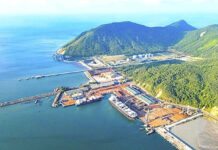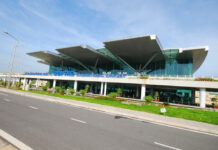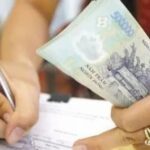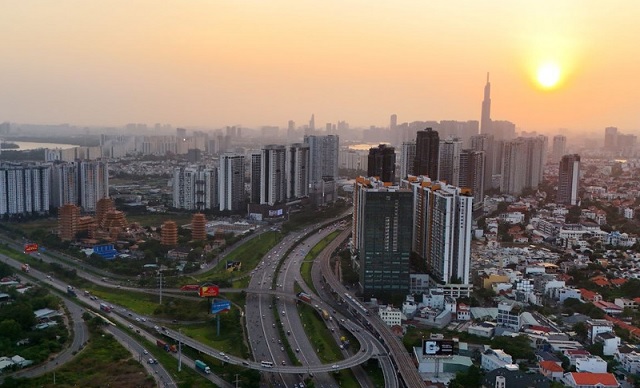
Vietnam’s current standing is not only reflected in its impressive socio-economic development indices but also in its proactive role within multilateral institutions. (Photo: Hong Dat/VNA)
|
Over the past 80 years since gaining independence after the August Revolution in 1945, Vietnam has transformed from a war-torn country to a nation that actively and proactively contributes to the international community, thereby affirming its role and position on the world stage and within multilateral institutions.
In a conversation with correspondents based in Germany on the occasion of the 80th National Day (September 2, 1945 – September 2, 2025), Prof. Dr. Sc. Nguyen Xuan Thinh from TU Dortmund University and Acting President of the Union of Vietnamese Associations in Germany affirmed that in just eight short decades of modern national history, Vietnam has undergone an extraordinary transformation: from a colonial country ravaged by war to an independent, integrated nation that increasingly asserts its position as a responsible member of the international community.
Vietnam’s current standing is not only reflected in its impressive socio-economic development indices but also in its proactive role within multilateral institutions such as the Association of Southeast Asian Nations (ASEAN), the United Nations, the Asia-Pacific Economic Cooperation (APEC) forum, and new-generation trade agreements like the Comprehensive and Progressive Agreement for Trans-Pacific Partnership (CPTPP), the EU-Vietnam Free Trade Agreement (EVFTA), and the Regional Comprehensive Economic Partnership (RCEP).
Prof. Thinh asserted that Vietnam is no longer a “follower” but is gradually becoming a partner in shaping global issues such as peace, food security, climate change, and sustainable development.
According to him, the deep-rooted source of this standing lies in the resilient spirit, aspirations, and cultural strength of the Vietnamese nation. It is also a great source of inspiration that drives the overseas Vietnamese community—including those in Germany—to always look towards their homeland and join hands in building a brighter future for Vietnam on the world map.
Regarding Vietnam’s orientations and development strategies in this era of national advancement, such as issues related to the rule of law, breakthroughs in science and technology innovation, international integration, and private sector development, Prof. Thinh acknowledged the issuance of four important resolutions by the Political Bureau, which General Secretary To Lam likened to the “four pillars” for the country’s takeoff. These resolutions are like four strategic thrusts propelling Vietnam into an era of development based on knowledge, technology, and global standards.
Prof. Thinh emphasized that the rule of law is the foundation for a transparent, efficient, and sustainable society, building trust not only among its citizens but also with the international community. Innovation and science-technology are inevitable paths for Vietnam to break through, surpass the middle-income trap, and advance towards a digital and green economy.
International integration is not just about market opening but also about proactively participating in shaping global rules. Meanwhile, the private economic sector, if properly unleashed, will be a powerful driving force to turn development aspirations into reality.
In the context of digital transformation and green transition as irreversible trends, science and technology will be the essential foundation for all fields. Vietnam needs to proactively embrace new technologies such as artificial intelligence (AI), big data, clean energy, biotechnology, and new materials.
The Vietnamese intellectual community abroad can play a strategic role, not only in knowledge and technology transfer but also in bringing global thinking and international standards, contributing to a creative, green, and sustainable Vietnam.
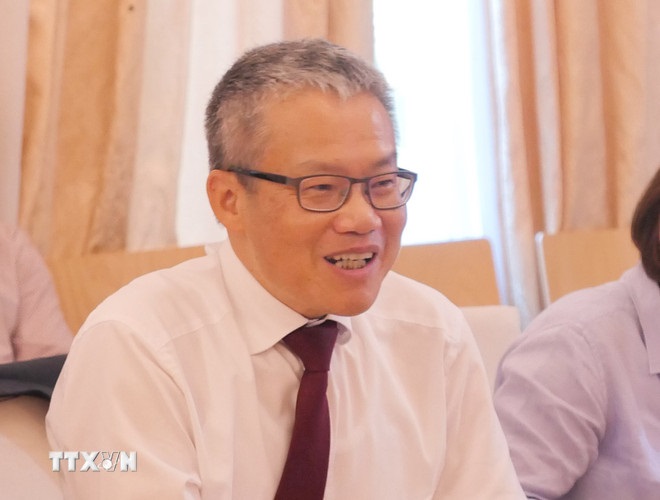 Prof. Dr. Sc. Nguyen Xuan Thinh. (Photo: Thu Hang/VNA)
|
However, Prof. Thinh also noted that while Vietnam is presented with historical opportunities to make a breakthrough, there will also be significant challenges, both domestically and internationally.
The first challenge pertains to the quality of institutions and implementation capacity. The right policies are a necessary condition, but transparency, integrity, and effectiveness in implementation are sufficient conditions to build trust and foster development momentum.
New-generation free trade agreements (FTAs) can help Vietnam expand its export markets, attract foreign investment, enhance competitiveness, and deepen integration into the global economy. However, Vietnam also faces significant challenges, including intensified competition, the need to enhance production and management capabilities, and the adjustment of legal regulations to align with FTA commitments.
The second challenge is the gap in science and technology and the availability of well-trained human resources. In the context of the Fourth Industrial Revolution, high-quality human resources with innovative and adaptive thinking will be a decisive factor.
The third challenge arises from complex external fluctuations. Geopolitical instability, strategic competition, climate crises, and shifts in global value chains demand that Vietnam adopt a strategy that is both flexible and steadfast in pursuing sustainable development.
The fourth challenge pertains to the merger of provinces and cities, the abolition of the district-level government, and the streamlining of the administrative apparatus, which will pose new requirements for administrative management, along with technical, legal, and social difficulties.
Lastly, but importantly, is the question of how to inspire and sustain a sense of national service, especially among Vietnam’s youth. Facilitating contributions from overseas Vietnamese and spreading the Vietnamese intellect and aspirations worldwide are considered by Prof. Thinh as essential solutions to unite the global Vietnamese community in turning aspirations into actions.
“Looking back at the past 80 years, we can be proud of a resilient and intelligent Vietnam that is rising strongly on the international arena. However, the journey ahead is fraught with challenges, requiring unprecedented dedication, creativity, and unity from the entire nation,” Prof. Thinh stated.
He expressed his belief that “the overseas Vietnamese community—with their patriotism, global knowledge, and attachment to their roots—is an indispensable part of realizing a strong, green, and sustainable Vietnam. Now is the time for us to join hands and contribute our intellect and strength so that the world will know Vietnam not only for its heroic past but also for a brilliant future shaped by Vietnamese values.”
Thu Hang
– 17:00 22/08/2025
“Institutional Refinement for the Semiconductor Industry: Ensuring Energy and Human Capital”
The announcement, Directive 439/TB-VPCP, underscores the imperative for ministries and sectors to collectively address key bottlenecks in infrastructure, institutions, human resources, and energy. By doing so, and by actively promoting international cooperation and localizing supply chains, Vietnam’s semiconductor industry can achieve a breakthrough and ascend to new heights.
National Economic Census 2026: Unveiling a Comprehensive Snapshot of the Nation’s Economy
The Minister of Finance has issued Decision No. 2837/QD-BTC on August 18, 2025, announcing a comprehensive economic survey for the nation in 2026.
“The Billionaire’s Vision: Saigon Marina IFC – A Hub for Financial Institutions, Tech Giants, and Logistics Experts with Over 10,000 Professionals Working Daily.”
“The inauguration of Saigon Marina IFC is a pivotal moment for Ho Chi Minh City’s aspirations to become an international financial hub. This milestone event, witnessed by government leaders, the State Bank of Vietnam, and HDBank, signifies the city’s embrace of a new era of integration, innovation, and global capital attraction.







